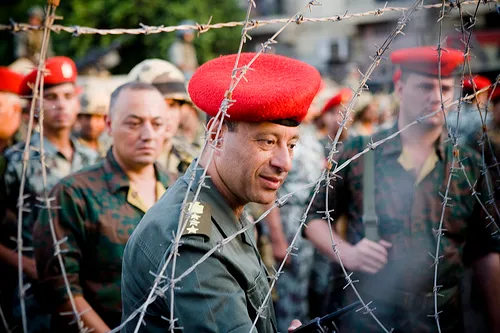Author: Berk Esen
Affiliation: Bilkent University, Ankara, Turkey
Organization/Publisher: Armed Forces and Society, Sage Journals, USA.
Date/Place: June 22, 2020/USA
Type of Literature: Article
Number of Pages: 22
Link: https://journals.sagepub.com/doi/full/10.1177/0095327X20931548
Keywords: Turkish military, 1960 coup, 1971 memorandum, National Unity Council
Brief:
The article focuses on the evolution of the praetorian nature of the Turkish military and their disagreement on major political issues during the Cold War. The reason was that the officer corps was divided into opposite ideological factions and political interests due to frequent expulsion and conjectural shifts. According to the author’s interpretations, the change emanated after the introduction of the multiparty system because the junior officers were inclined to the secular ideological basis of the country. As a result of the 1960 coup d’etat, a strong split erupted within the army. The radical officers wanted long-term military rule but the moderates favored a speedy return to parliamentary rule. The officer corps was in close contact with politicians during the 1960s and 1970s who maintained control of the political space by giving more power to the national security council (Milli Güvenlik Kurulu, MGK); established the pension fund for the army (Ordu Yardımlaşma Kurumu, OYAK); and received promotions and favors from politicians like İnönü and Demirel who kept the high-ranking generals Cemal Gürsel and Cevdet Sunay in the presidency in exchange for their loyalty to parliamentary rule. Author Berk Esen explains the interventionist tradition which is still alive in the officer corps and demonstrated in the 2016 coup attempt. The Gülenist officers had joined the Turkish military in the 1980s and subsequently rose through the ranks of the armed forces even before the AKP first took office. Under the AKP rule, they finally reached the military’s upper echelons and, in turn, were used by the government to neutralize its opponents. The author concludes that this shift was promoted by the officer corps’ US-trained officers, that has shaped promotion channels and may have consequently reduced the chance of success for coups from below due to their radical nature.
By: Razia Wadood, CIGA Senior Research Associate




